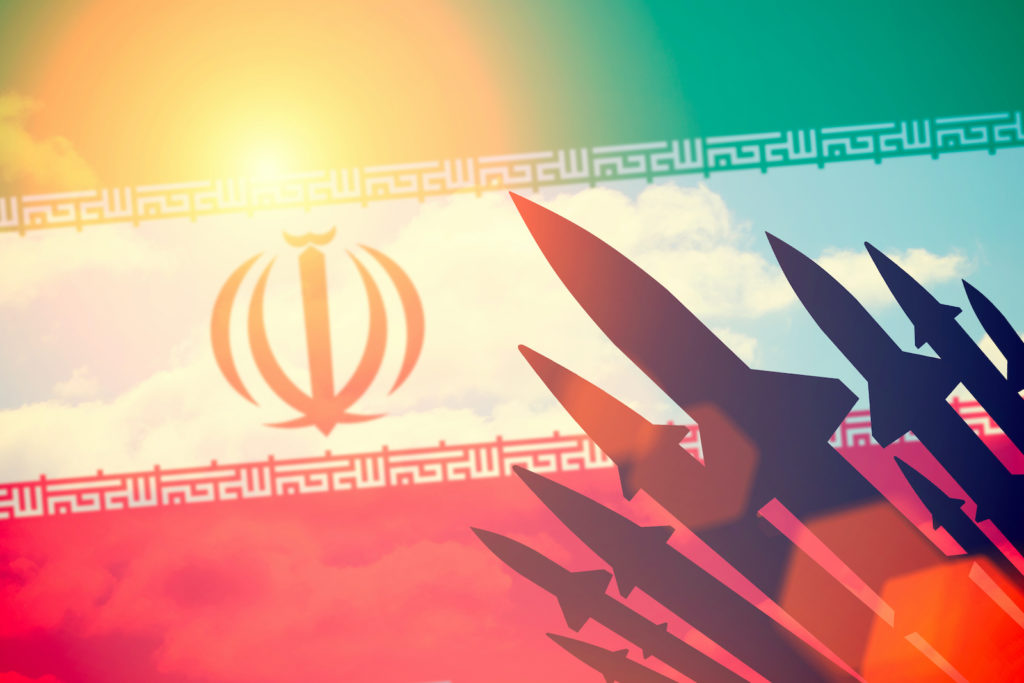FRESH AIR
UPDATES
Some Arab opinion leaders re-think their approach to Israel – but others cling to “anti-normalisation”
Mar 6, 2016 | Or Avi Guy

Or Avi-Guy
The events of the so-called “Arab Spring”, the chaos that ensued and the wars raging in Syria and Iraq, have highlighted to the world some of the structural and deeply-embedded governance deficiencies in Arab countries, and the related problems of under-development. Recognising these problems – as well as the common interests between the conservative Sunni Arab states and Israel in containing Iran’s regional ambitions – it appears that some voices within the Arab world itself, especially Sunni states, are changing their tune when it comes to Israel.
Abdulateef al-Mulhim, writing in the Arab News, catalogued what he has noticed about the changing attitude towards Israel in Arab media (Israel’s disappearance from Arab media scene, Feb. 25). Al-Mulhim suggested that “The day the so-called Arab Spring erupted, Israel became invisible in the Arab media. Arabs are too preoccupied with so many issues plaguing their own lands.”
He further points out that despite the previous preoccupation with Israel, more wars took place between Arab countries than were fought with Israel, and that the former were also far more deadly. He explains that, at least partly, the preoccupation with Israel has been promoted by Arab leaders who used anti-Israel agendas to improve their image and popularity:
“some of the Arab leaders used the Palestinian issue just to portray themselves as heroes… They also (mis)used the Palestinian misery and in due process they simply forgot to build their countries and neglected improving the living standards of their people.”
In addition, Arab leaders also frequently blame Israel for the region’s troubles, and use the Israeli-Palestinian conflict as a convenient distraction from their own misdeeds and misuse of government.
Yet now, al-Mulhim suggests, the media is comparing current conflicts in the region, especially in Syria, with previous wars with Israel, and noting how the scale of devastation is much higher in the former cases:
“People are asking as to why during full-scale wars with Israel, we never saw destruction of archaeological, historical or religious sites. In the past, we talked about Palestinian refugees, now we are dealing with a new wave of refugees emanating from Syria and other parts of the region. The Arab media now has no time or space to talk about Israel and to raise the issue of Palestine or Palestinians.”
This, to al-Mulhim, indicates a positive change in priorities:
“Instead of reading about Israel, Arabs want to discuss ways to promote better education, improved health-care facilities, social equality and better infrastructure.”
And some commentators are going beyond what al-Mulhim discusses – ignoring Israel to focus on their own problems, such as improving their political processes, education and health services and economies and addressing social inequality – to actually look to Israel as an inspiration for figuring out how to address these problems. Take for example Kuwaiti columnist Ahmad Al-Sarraf, who wrote in his column in the Kuwaiti daily Al-Qabas (Feb. 1) about lessons the Arab world could learn from Israel.
Al-Sarraf noted that while Israel was viewed as the greatest enemy of the Arab world, shifting realities in the Middle East have turned Iran into larger threat:
“As for Israel, many [of us] view it as a political-religious foe, as opposed to a cultural danger, and this is a serious mistake. Even though our conflict with it has never ceased, we have remained ignorant regarding everything it represents, and for 70 years we have lacked, and continue to lack, all knowledge about it, and have learned nothing from it.”
He then lists the fields in which he argues that Israel has “outdone” the Arab world, in particular in regards to military capabilities, science and culture. He also emphasises what he perceives as the key for Israel’s success:
“Since its founding, Israel has been committed to democracy, while we refuse to even speak of it [i.e. democracy], let alone adopt it…”
He also praises Israel’s investment in research, technology, agriculture, industry and military:
“Israel has focused its attention on science, spending large sums on research, while we are still focused on whether drinking camel urine or using it medicinally is actually helpful.”
Al-Sarraf also lists the specific advantages and benefits of Israeli democracy, compared with the Arab world, such as minority rights “that most citizens in most Arab countries do not even dream of”, worship rights which “exceeds that in any Arab or Islamic country” and the rule of law.
The last point is especially topical given that on Feb. 15, former Israeli PM Ehud Olmert began serving his 19-month prison sentence, having been convicted for bribery and corruption charges. The news reached the Arab world, and a number of commentators responded by praising Israeli democracy for addressing official corruption.
In the London daily Al-Hayat, Palestinian-Syrian writer Majed Kayali laments the fact that the Arab public finds investigation of politicians for corruption and sexual assault allegations as “strange,” and that ” some people’s opposition to Israel leads them to deny any advantages it has.”
Instead, he suggests that the Arab world should observe and learn more about democracy in Israel, and compares it with Arab regimes:”The most important thing is that this country [Israel] is run in modern democratic ways… in which the citizens are free and equal. This, in fact, is what sets it apart from our regimes, and ensures its continued development, stability, and supremacy.” He then added that “It is precisely this aspect – that it is a state of institutions, laws, and citizen [rights] – that our nations lack and that the tyrannical regimes have made sure that we are denied, on the pretext of confronting Israel on the reality of the absence of a [Palestinian] state…”
Kayali suggests that Arab populations “must get to know Israel and its domestic sources of strength if we are to deal with our situation and our various struggles with it. Ignorance about Israel… will only add to our frustration and backwardness, and inflict repeated defeats on us…”
Meanwhile, Hassan Ahmad Al-Shubaki, director of Al-Jazeera in Jordan, wrote in the Jordanian daily Al-Ghad that “the Arabs are unaccustomed to such news [i.e. Olmert’s prison sentence]. In their view, a senior figure is immune to any demands for accountability,” adding that “This news and its circumstances puts us [Arabs] to shame, in light of our ongoing lies about the integrity [in our ranks]”.
He too stressed that the Arab world should learn from Israel, since “despite the crimes committed daily against our people, we have never had a case like Olmert’s.” He also complained about the lack of rule of law, integrity and accountability in Arab regimes, compared with Israel’s treatment of corrupt politicians.
The Anti-Normalisation Brigades
These examples of Arab commentators who seek to address governance issues in Arab regimes and improve the conditions of their population by learning from Israel, even while remaining supportive of the Palestinian cause, are a welcome expression of nuanced thinking which bodes well for future peace hopes. Yet anti-normalisation – a knee-jerk rejection of any contact with Israel or acceptance of it in any form – is still going strong in many parts of the Arab world. For many there, blaming Israel is more important than addressing the concerns, and improving the lives, of citizens.
For example, in Egypt a member of Parliament, Tawfik Okasha, was heavily criticised – and even physically attacked by another MP who hit him on his head with a shoe – for inviting the Israeli Ambassador to Egypt Haim Koren to his house to discuss politics.
MPs reportedly tabled requests with parliament speaker Ali Abdel-Al asking that Okasha be punished, and even expelled, for “committing the unprecedented crime of meeting with Israel’s ambassador in Egypt.” Led by novelist Youssef El-Qaeed, the MPs argued that Okasha’s meeting with Ambassador Koren is “a violation of the Egyptian people’s campaign aimed at halting any moves towards normalisation with Israeli officials.” El-Qaeed also claimed that “Okasha’s meeting with Israel’s ambassador represents a crime against Egypt’s new parliament and its MPs.”
The Social Justice parliamentary bloc was scheduled to release a statement entitled “MPs against normalisation” in response to the meeting, which reportedly was supported by more than a hundred MPs. Another parliamentary bloc, the “Support Egypt” coalition, which includes 250 MPs, also condemned Okasha’s meeting, and announced that they would be voting in favour of any decision or motion tabled against him.
In addition, the Egyptian newspaper Youm7 (al Youm al Saba’a) reportedly launched a virtual online game, in which players could hit an animated image of Okasha, who appears standing in front of an Israeli flag, with a shoe.
Okasha was suspended from Parliament for ten sessions – though ostensibly not for his meeting with the Israeli ambassador but rather for the criticism against the speaker and Parliament which he expressed on the media.
All of this was for doing no more than meeting with the Ambassador of a country with which Egypt has had full diplomatic relations for more than 35 years now.
Another expression of anti-normalisation in Egypt was the criticism of Rami Aziz, an Egyptian-born journalist residing in Rome, who visited Israel as part of a delegation of European journalists of Arab descent organised by the Israeli Foreign Ministry. Aziz appeared in a photo with the Israeli army’s Arabic-language spokesman Avichay Adraee posted on Facebook.
The Egyptian Journalists’ Syndicate quickly denied that any of its members took part in a press trip to Israel, – since that body still has rules which actually forbid any of its members from either visiting Israel or having any contact with Israeli officials. Mahmoud Kamel, a member of the Journalists’ Syndicate board, called the trip “part of a conspiracy by the Zionist entity.” Egyptian mainstream media also slammed Aziz for visiting Israel.
While Egypt’s struggle to normalise relations with Israel remains a public diplomatic challenge, Palestinian insistence on anti-normalisation actually negatively impacts the lives of Palestinians in very real and concrete ways. One prime example is Rawabi, the first pre-planned new Palestinian city, built just north of Ramallah on the initiative of Palestinian American entrepreneur Bashar Masri. This ambitious project, designed as a “flagship Palestinian enterprise” as part of building the basis of a future Palestinian state, continuously faces obstacles due to the PA’s ongoing refusal to deal with Israeli authorities to promote its completion.
As Evelyn Gordon noted, “Rawabi was founded with the goal of providing decent, affordable housing for middle-class Palestinians… From the start, however, the PA did its best to undermine the project; despite repeated promises of support, it refused to provide even the basic infrastructure that most governments routinely provide to new residential developments.” This infrastructure include water and sewage systems, and education and health services.
In order to provide running water for the new city, the PA would have needed to convene the joint Israeli-Palestinian water committee to approve the new water projects to the city. But it refused to do so for the past five years, until Israel eventually unilaterally approved the plans.
According to a JTA report, the Palestinian Boycott, Divestment and Sanctions National Committee also has denounced the project, and has accused the project developer Bashar Masri of “normalization with Israel that helps it whitewash its ongoing occupation, colonization and apartheid against the Palestinian people.”
As Gordon noted, this accusation against Masri is made simply for dealing with Israeli officials to obtain approvals for provision of basic services such as electricity and water, which many other Palestinians already receive from Israel or Israeli companies. She concluded that:
“as long as many Palestinians view ostracizing Israel as higher priority than providing their own people with basic necessities such as electricity and running water, the West’s dream of a Palestinian state will remain a pipe dream. You can’t build a state for people who would rather tear down the neighbouring one than build up their own.”
Tags: Egypt

















